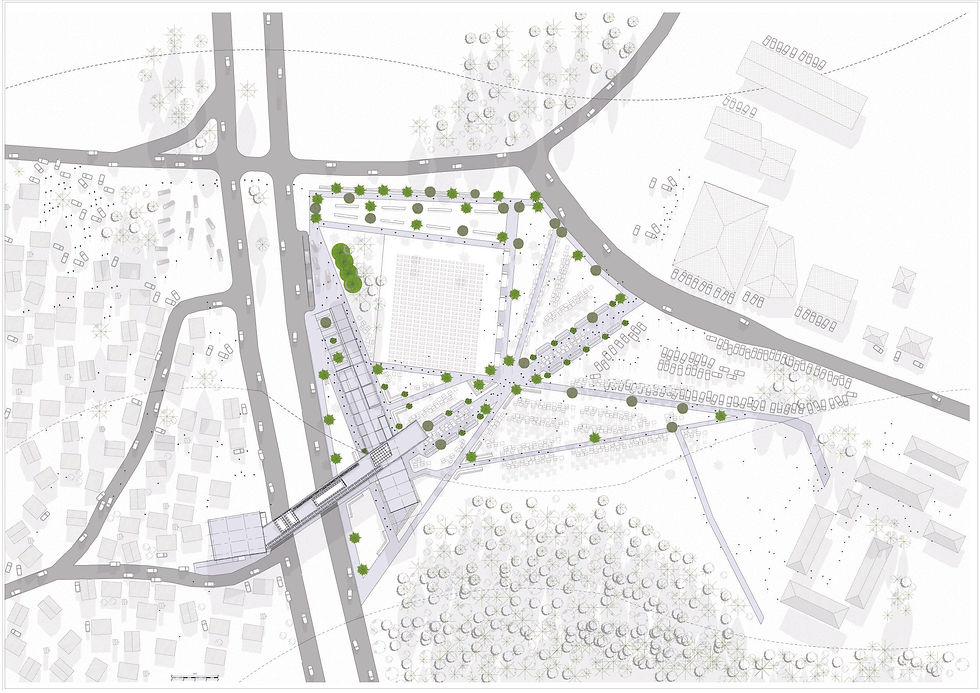Mohammed Patel
Multivalent Urbanism: Eikenhof, A Site of Multivalent Urban Layers: Addressing The Overlapping Functions of Trade, Mobility, Sanitation and Memory.
Civic Architecture
Eikenhof, Johannesburg South, Gauteng, ZA
Johannesburg is a city marked by overlapping conditions of absence and excess. In its informal settlements, the absence of formal infrastructure does not create emptiness, but rather an overloading of survival practices where trade, mobility, sanitation and memory converge in improvised and contested ways. Eikenhof, on the city’s southern threshold, exemplifies these conditions. Adjacent to the Jackson informal settlement, the site functions simultaneously as a taxi stop, a vendor market, a pedestrian crossing and a cemetery edge, yet remains without reliable civic services.
This research positions architecture as a mediating device within such fragmented terrains. Rather than treating infrastructure as secondary or peripheral, the study reframes services such as sanitation, water harvesting and mobility systems as civic protagonists. The proposition of multivalency is developed as a conceptual and spatial tool: a framework that consolidates diverse programmes into a single architectural typology capable of generating dignity, adaptability and permanence in contexts often marked by neglect. The thesis advances its argument through four thematic strands trade, mobility, sanitation and memory. Each interrogated through precedent studies and site-based analysis. These strands are then synthesised into an integrated civic typology that supports informal practice while addressing infrastructural absence. Technical feasibility is explored through strategies of decentralised water collection, filtration and distribution, material choices that communicate endurance, and programmatic overlaps that embed infrastructure within everyday life.
By situating design at the intersection of fragmented systems, the thesis proposes a replicable methodology for peripheral urban conditions in Johannesburg and beyond. Multivalent Urbanism is framed not as an imposition of formality, but as an architectural negotiation that legitimises informal survival practices, reconfiguring them into civic frameworks of justice, belonging and collective memory.



